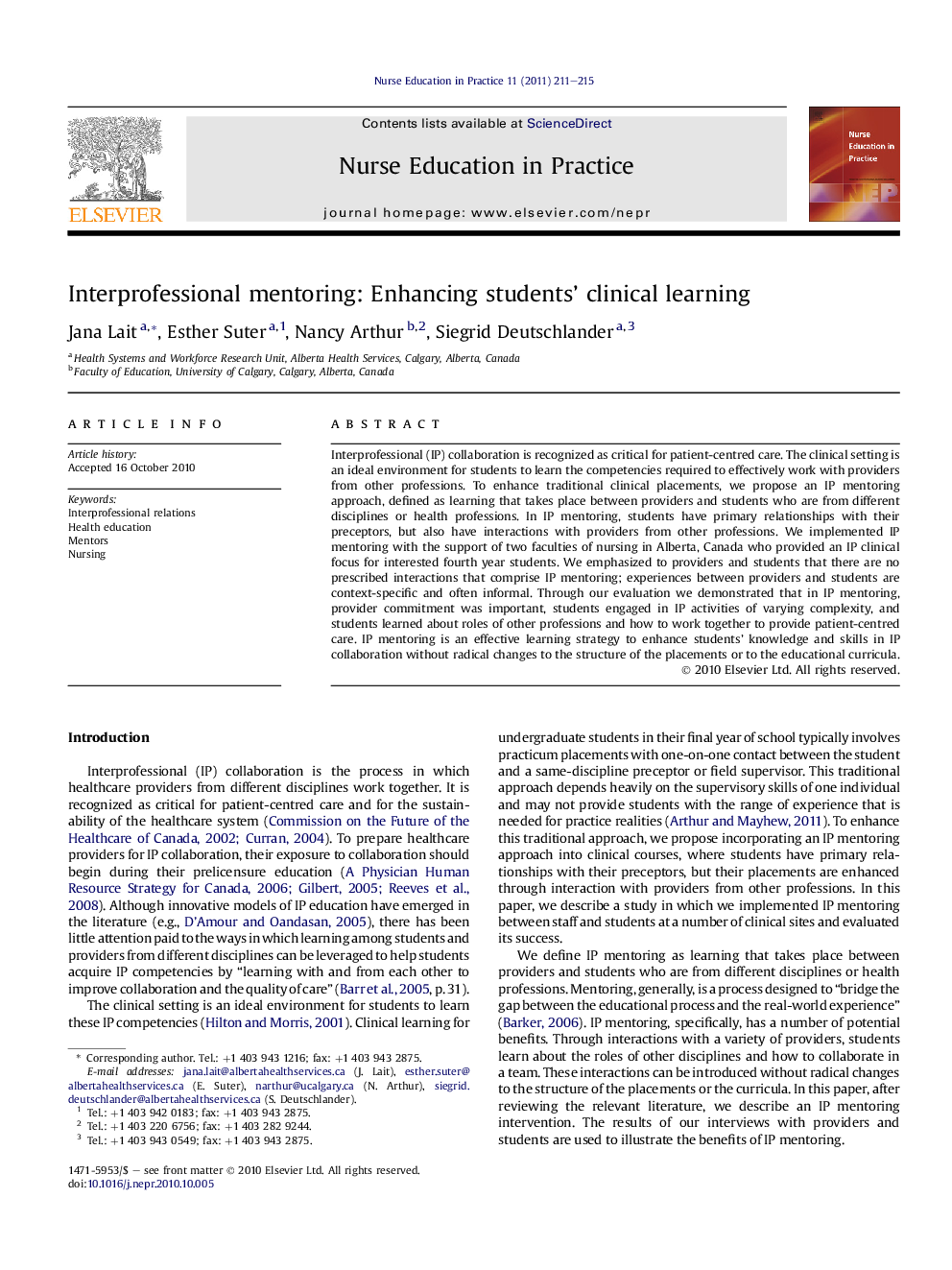| Article ID | Journal | Published Year | Pages | File Type |
|---|---|---|---|---|
| 366903 | Nurse Education in Practice | 2011 | 5 Pages |
Interprofessional (IP) collaboration is recognized as critical for patient-centred care. The clinical setting is an ideal environment for students to learn the competencies required to effectively work with providers from other professions. To enhance traditional clinical placements, we propose an IP mentoring approach, defined as learning that takes place between providers and students who are from different disciplines or health professions. In IP mentoring, students have primary relationships with their preceptors, but also have interactions with providers from other professions. We implemented IP mentoring with the support of two faculties of nursing in Alberta, Canada who provided an IP clinical focus for interested fourth year students. We emphasized to providers and students that there are no prescribed interactions that comprise IP mentoring; experiences between providers and students are context-specific and often informal. Through our evaluation we demonstrated that in IP mentoring, provider commitment was important, students engaged in IP activities of varying complexity, and students learned about roles of other professions and how to work together to provide patient-centred care. IP mentoring is an effective learning strategy to enhance students' knowledge and skills in IP collaboration without radical changes to the structure of the placements or to the educational curricula.
